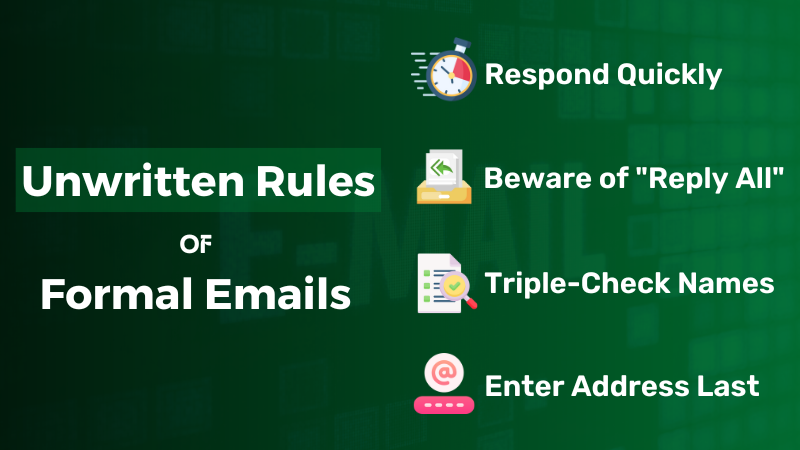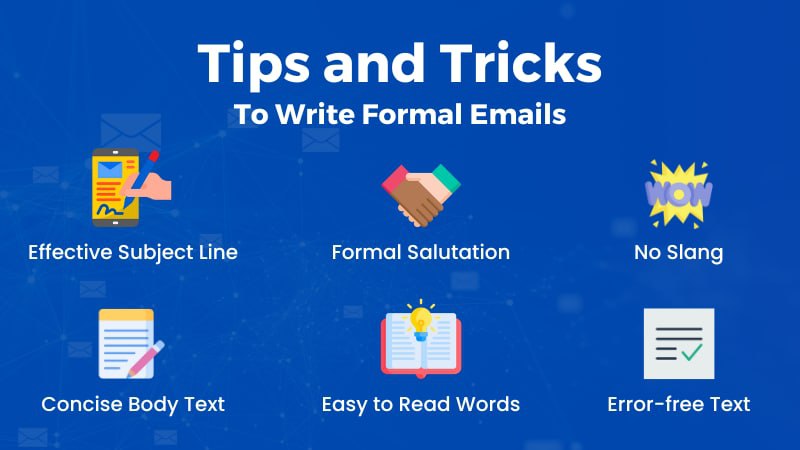Types of Business Letters | When to Write Which Type
What is a Business Letter?
The business people, by the nature of their jobs, use a form of written or printed documents to get their ideas and thoughts across. These can be sent to give a positive message, to give negative messages or apologizing, to place a straight or modified rebuy, or simply to resign from the job in consideration (oops!).
Since they are written by serious people for serious business, they are rarely informal. They may be polite, but not informal, and are formal to semi-formal (again, rarely, but also depends on the type of the business). They convey a clear message and therefore should leave no room for obscurity. So naturally, they become an important carrier of useful information.
Types of Business Letters
Business letters can be written between to an employer of the same company, by an employer to his employee, can be written to the suppliers or other business partners, and of course to the customers. There are different types of business letters:
Business-to-Business Letters:
- Letter of Appreciation
- Letter of Acknowledgement
- Cover Letter
- Letter of Reference
- Inquiry Letter
- Letter of Termination
- Letter to Place Order etc.
Business-to-Customer/Customer-to-Business Letters:
- Letter of Apology
- Letter to Inform about Circular
- Letter of Complaint
- Letter for Payment Collection
- Letter before Signing a Contract
- Follow-up Letter
- Appointment Letter
- Sales Letter
- Welcome Letter
- Goodwill Letter
When to Write Which Type of Business Letter:
Business letters start with the date, salutation, have professional content in the body, and end with a signature of the person writing it and/or enclosures. This is a generalized format of different types of business letters.
Before starting a business letter, you should always remember to:
- Choose the topic according to the issue to be addressed
- Consider your audience and the type of content that will suit their profession
- Choose a fitting tone
- Write a one-line statement of purpose
- Stick to the format and mention details
- Organize the details
- Proofread the draft for simple sentences, proper grammar and punctuation and finish editing
The end result should be a clear and understandable business letter which is likely to get the job done. It is needless to say, the biggest advantage of writing is in the fact that all our thoughts can be put to paper, solved for mistakes be it on paper or online, and finally sent to the recipients.
Now let us understand what the most common business letters mean and when to write them.
- Acknowledgment Letters: This type of letters is otherwise known as Letter of Receipt and do not mean anything more than just a confirmation. They are usually written for and are a sign of legal evidence, and do not necessarily mean that the action in question has been started, but the recipient has “acknowledged” that they have an understanding of the situation.
- Apology Letters: Letters of apology are written to simply say sorry for what has happened in the past, what measures are being taken to solve that issue or what the writer plans on about the inconvenience occurred. Substantially, these letters say something negative, but with a positive tone. Here the writer accepts their responsibility and shows sincerity about the problem so that the recipient doesn’t feel demoralized or ignored.
- Appreciation Letters: These letters are written by someone of the top management to the lower level to motivate or to express gratefulness. These are also called Thank-You Letters or Letter of Thanks.
- Circular Letters: This letter is sent to a small group but has the intention to grab the attention of larger groups. They are an important form of advertisement and promotion. They usually inform about new improvements in a company, about new facilities, or to show if any product or service is on sale.
- Complaint Letters: These letters are seen as actual problems and are addressed immediately to rectify the mistakes. These shouldn’t sound like the writer is nagging, but also shouldn’t lose its importance and professionalism if the writer wants to be taken seriously.
- Cover Letters: Cover letters usually accompany something more. They are used to describe what comes with them, why, what should be done with it and so on. These types of letters are generally very short. It might be attached with a resume explaining the applicant’s credentials and how it relates to the vacancy in the company.
- Follow-Up Letters: Follow-up letters are usually sent after some an initial communication has been made with the writer. This could be the thanking letter for an order requested by a customer, a review of the decisions taken in a meeting or an applicant inquiring about the status of his application.
- Inquiry Letter: This type of letters asks direct and detailed questions usually bullet-listed to derive/request information from the recipient. So, they are brief but powerful. They should be answered with accuracy.
- Order Letters: A business can write to another business requesting for an order or placing routine or modified buy. An individual can also request a firm and place an order. The model number, name, amount, size, date, location and other specifications are cleared out in the utmost detail in this letter.
- Payment Letters: These are collection letters or letters requesting for payment. These act as a reminder to the customer whose payment date is approaching or is due.
- Recommendation Letters: This is one of the requirements of the employer who ask for such kind of letters before hiring an employee. They contain the relationship between the applicant and the person whose recommendation is given.
- Resignation Letters: This letter is written when an employer plans to leave his job, explaining why and when the employee is leaving. It is usually given to the immediate senior of a worker.
- Sales Letters: These letters start with an interesting topic sentence to attract potential customers. These include the benefit that the customer will have from the sale, and often induce direct action by including a mode of communication with the seller, like a telephone number, email address or website link.
So, now that you know what business letters are and what each of them means, you have a good understanding when to write which. Use this knowledge in the future and combine it with your writing talent to get the most out of your business.
Grammar
Read More
- How to Use "Therefore" in Sentences Avoiding Common Mistakes
- How to Use "Whereas" with Examples and Avoid Common Mistakes
- When and How to Use "Thus" Correctly Without Common Mistakes
- How to Use "On the Contrary" Properly with Meaning and Examples
- When and How to Use "Either/Or" with Examples and Common Mistakes to Avoid
- How to Use "On the Other Hand" Effectively without Mistakes
- How to Use "Respectively" with Example and Common Errors to Avoid
- How and When to Use "Moreover" Without Mistakes
- How to Use "Likewise" in Sentences Based on Context & When not to Use
- When & How to Use "Although" in Sentences to Avoid Mistake





